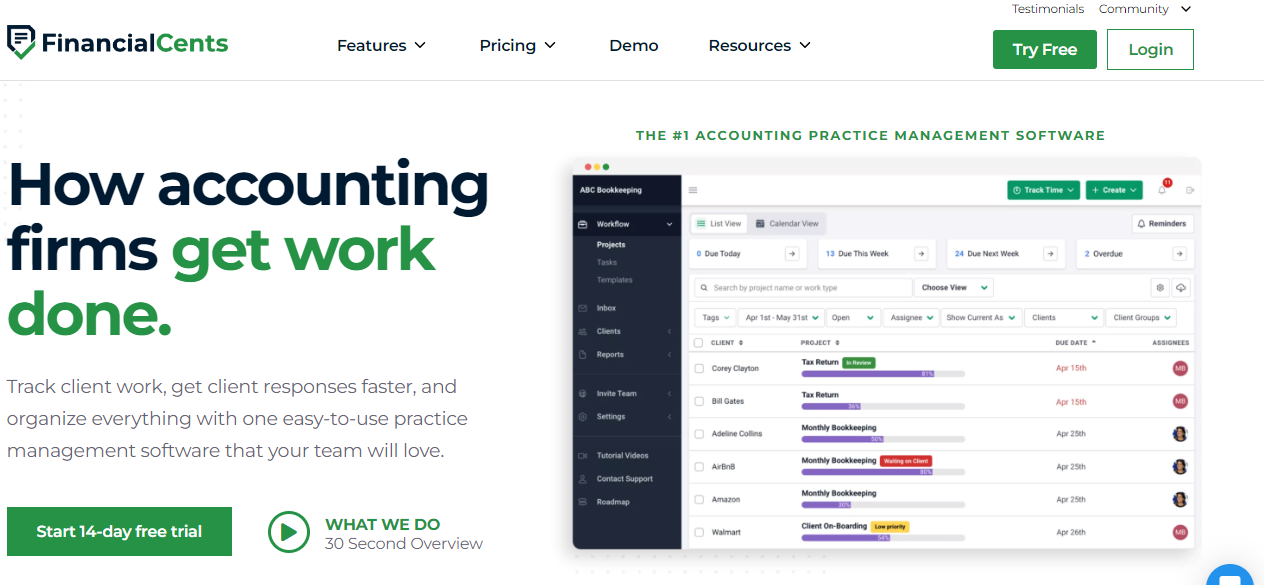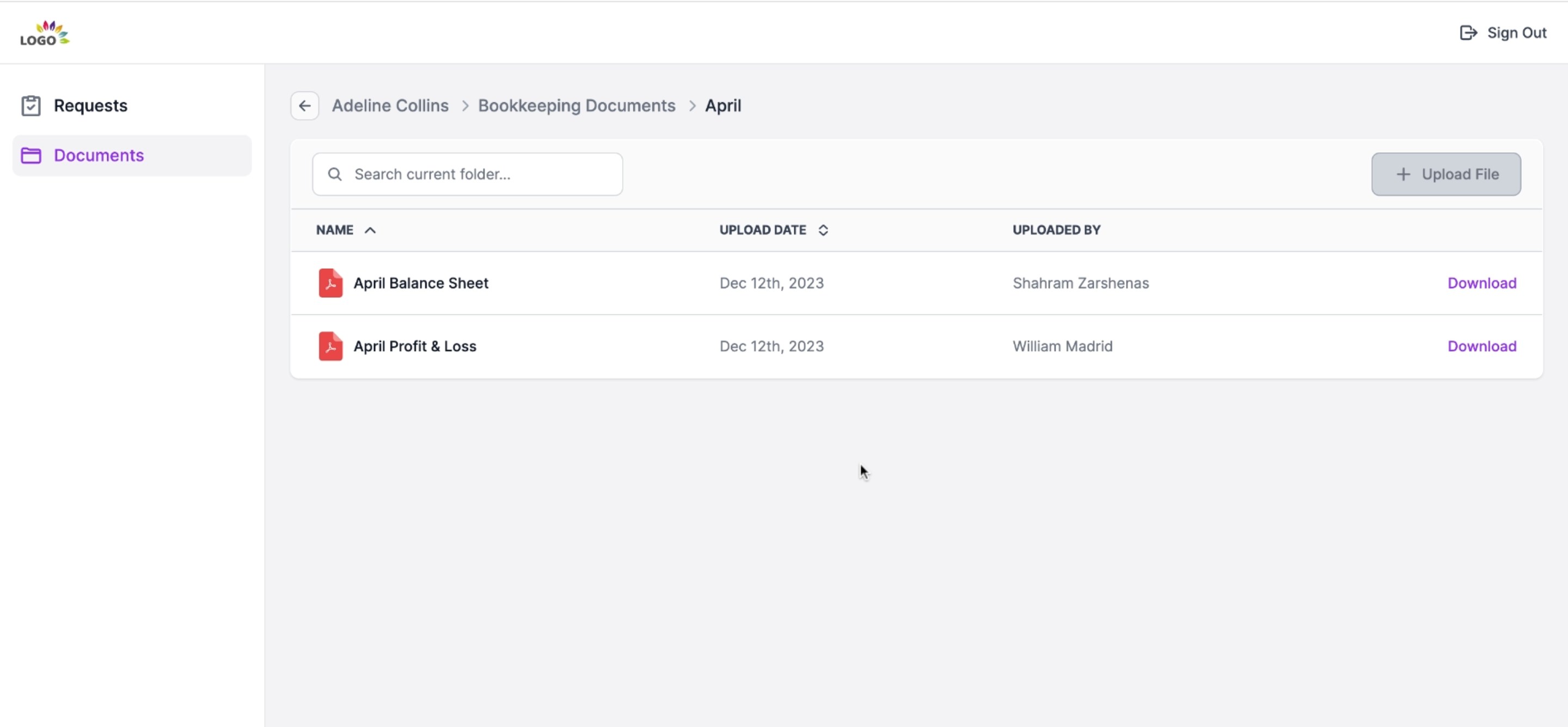Are you tired of drowning in piles of paperwork and endless spreadsheets? Managing documents efficiently can make or break your accounting firm’s productivity.
Imagine having a system that organizes your files seamlessly, saves you time, and keeps your clients’ information secure. That’s exactly what the best document management software can do for you. You’ll discover how the right tools can transform your workflow, reduce errors, and boost your firm’s performance. Ready to find the perfect solution? Don’t miss out on exploring Freshbooks—the trusted choice for accounting professionals looking to simplify their document management. Check it out here: Freshbooks. Keep reading to learn why it stands out from the rest.
Introduction To Document Management Software For Accounting Firms
Managing documents efficiently is crucial for accounting firms. Handling tax records, invoices, contracts, and compliance paperwork manually can lead to errors and inefficiencies. This is where document management software steps in to streamline processes and improve accuracy.
Document management software provides tools to organize, store, and retrieve files securely. It simplifies collaboration and ensures compliance with industry regulations. For accounting firms, adopting specialized solutions tailored to their needs is essential.
Understanding The Role Of Document Management In Accounting
Accounting involves handling sensitive financial data. A reliable document management system helps ensure data security and accessibility. It reduces time spent searching for files and minimizes risks of losing critical information.
- Secure storage: Protects financial records from unauthorized access.
- Easy retrieval: Locates documents quickly with search functionality.
- Compliance support: Helps meet industry regulations for data handling.
- Collaboration tools: Allows team members to work together seamlessly.
Document management software also automates repetitive tasks, saving time and improving productivity. This is vital for accounting firms managing high volumes of client data.
Why Accounting Firms Need Specialized Document Management Solutions
Accounting firms face unique challenges that require tailored solutions. Generic document management systems may lack the features necessary for their workflows.
| Feature | Importance for Accounting Firms |
|---|---|
| Integration with accounting software | Ensures seamless transfer of financial data between tools. |
| Tax compliance tools | Helps firms adhere to tax regulations efficiently. |
| Customizable workflows | Supports specific processes like auditing and invoicing. |
| Data encryption | Protects sensitive financial information from breaches. |
Solutions like FreshBooks offer specialized features for accounting firms. These include invoice tracking, expense management, and secure file storage.
Choosing the right document management software enhances efficiency. It also improves client trust by ensuring data safety and compliance.
Key Features Of Top Document Management Software For Accounting Firms
Document management software for accounting firms must offer features that improve security, organization, and collaboration. The right tools help manage sensitive financial data while saving time. Essential features include secure storage, quick search, smooth integration, team collaboration, and compliance support. These features ensure smooth workflows and protect client information.
Secure Cloud Storage And Data Encryption
Top software provides secure cloud storage to keep documents safe and accessible anywhere. Data encryption protects files during transfer and storage. This prevents unauthorized access and data breaches. Cloud storage also offers automatic backups, reducing the risk of data loss.
Automated Document Indexing And Search Capabilities
Advanced software uses automated indexing to organize documents by client, date, or type. Fast search features help find files instantly using keywords or filters. This reduces time spent on manual filing and locating documents. It supports both text and scanned images for better accuracy.
Integration With Accounting And Tax Software
Integration with popular accounting and tax software streamlines workflows. Users can import and export data without manual entry. This reduces errors and improves efficiency. Integration often includes synchronization of client details, invoices, and tax forms.
Collaboration Tools For Team Efficiency
Collaboration features enable team members to share, edit, and comment on documents in real-time. Version control tracks changes and prevents conflicts. Task assignments and notifications help manage workloads. These tools enhance communication and reduce delays in client service.
Compliance And Audit Trail Features
Software must support regulatory compliance by maintaining detailed audit trails. It logs who accessed or modified documents and when. This transparency helps with audits and legal requirements. Compliance features also include secure user permissions and document retention policies.
Pricing And Affordability Breakdown
Choosing the right document management software means balancing cost and features. Understanding pricing structures helps firms pick options that fit their budget. This section breaks down different pricing models, value for money, and how costs scale for growing accounting firms.
Comparing Subscription Models And Licensing Fees
Most accounting firms find subscription models common in document management software. These usually charge a monthly or annual fee per user. Licensing fees may apply for on-premise solutions.
- Subscription plans often include updates and support.
- Licensing fees can be a one-time payment with optional maintenance costs.
- Cloud-based services like Freshbooks charge by user and feature tier.
Choosing between these depends on firm size and preference for cloud or local software.
Cost Vs. Value: What You Get For Your Investment
Price is more than a number. It reflects the features, security, and customer support received. Freshbooks offers various plans with different limits on clients, invoices, and integrations.
| Plan | Monthly Cost | Main Features |
|---|---|---|
| Lite | $15 | Up to 5 clients, basic invoicing, email support |
| Plus | $25 | Up to 50 clients, automated reminders, time tracking |
| Premium | $50 | Up to 500 clients, advanced reports, priority support |
Firms gain efficiency and compliance features worth the investment. Consider your firm’s document needs versus plan limits.
Scalability And Pricing For Growing Firms
As firms grow, document management needs increase. Flexible pricing helps avoid costly upgrades or wasted resources.
- Freshbooks allows easy upgrades between plans without downtime.
- Additional users add a small fee per month, keeping costs predictable.
- Cloud-based models reduce IT overhead, saving money long-term.
Scalable pricing supports firms expanding client bases or staff numbers. Choose software that adapts to growth smoothly.

Credit: financial-cents.com
Pros And Cons Based On Real-world Usage
Accounting firms rely heavily on document management software to streamline operations and improve efficiency. Choosing the right solution involves weighing its strengths and limitations based on real-world experiences. Below, we explore the pros and cons of popular document management tools used by accounting professionals.
Strengths Of Leading Document Management Solutions
Leading software solutions, such as FreshBooks, offer several advantages for accounting firms:
- Ease of Use: Many solutions feature intuitive interfaces, reducing training time.
- Centralized Document Storage: Tools like FreshBooks enable secure and organized storage of accounting files.
- Integration Capabilities: Seamless integration with accounting software improves workflow efficiency.
- Automated Processes: Automatic document categorization and updates save time and prevent errors.
- Scalability: These solutions can scale to meet growing business needs.
FreshBooks specifically excels in areas like invoice management and payment tracking, making it particularly valuable for accounting professionals.
Common Limitations And Challenges
Despite their strengths, document management software also has limitations:
- Cost: Subscription fees may be expensive for smaller firms.
- Learning Curve: Some advanced features require time to master.
- Limited Customization: Certain tools lack flexibility for tailoring to unique firm needs.
- Data Migration Issues: Transitioning from older systems can result in compatibility problems.
- Storage Limits: Free plans often come with restricted storage capacity.
While FreshBooks resolves many common challenges, users occasionally report limitations in handling large volumes of historical data.
User Feedback And Case Studies From Accounting Firms
Accounting firms share valuable insights into their experiences with document management tools:
| Firm | Feedback | Outcome |
|---|---|---|
| Small Accounting Firm | FreshBooks improved file organization and reduced invoice errors. | Increased productivity by 30% within six months. |
| Mid-Sized Firm | Integration with accounting tools streamlined workflows. | Saved 15 hours per week in manual tasks. |
| Large Firm | Faced challenges with data migration for historical archives. | Required additional resources for smooth transition. |
Overall, FreshBooks is praised for its simplicity, but firms suggest exploring storage options for larger datasets.
Specific Recommendations For Ideal Users And Scenarios
Choosing the best document management software depends on the size of your firm, compliance demands, and collaboration needs. Different solutions fit diverse accounting environments. This section helps match software options with user profiles and scenarios for optimal results.
Best Options For Small Accounting Firms
Small accounting firms need simple, affordable, and easy-to-use software. FreshBooks stands out for its user-friendly interface and essential features tailored for small teams. It offers:
- Simple invoicing and expense tracking
- Cloud-based access for remote work
- Basic document storage and management
- Affordable pricing plans
These features suit firms with fewer staff and limited IT resources. FreshBooks streamlines daily tasks without overwhelming small teams.
Solutions Tailored For Large Firms And Enterprises
Large firms require robust systems with advanced security and scalability. They handle massive volumes of documents and complex workflows. Ideal solutions offer:
- Advanced access controls and permissions
- Integration with ERP and tax software
- Automated document routing and audit trails
- Customizable workflows and reporting
While FreshBooks focuses on smaller firms, enterprises often choose specialized enterprise-grade platforms for these needs.
Choosing Software Based On Compliance Needs
Accounting firms must comply with strict regulations like GDPR, HIPAA, or SOX. Software should offer:
- Secure document encryption
- Audit logs and history tracking
- Role-based user access
- Data backup and disaster recovery
FreshBooks ensures basic compliance suitable for small firms. Larger firms should seek solutions with advanced compliance certifications.
Recommendations For Firms Prioritizing Collaboration
Collaboration demands real-time document sharing and communication tools. Features to look for include:
- Multi-user access with edit tracking
- Cloud-based file sharing and syncing
- Integration with communication platforms
- Version control and comment systems
FreshBooks supports cloud access and sharing, suitable for small teams needing simple collaboration.

Credit: monday.com
Conclusion: Selecting The Best Document Management Software For Your Accounting Firm In 2025
Choosing the right document management software is crucial for accounting firms aiming to improve efficiency and security. The right tool helps organize files, streamline workflows, and maintain compliance. In 2025, focus on software that fits your firm’s size, budget, and specific needs. Careful selection leads to smoother operations and better client service.
Summary Of Key Considerations
- Security: Ensure strong encryption and user access controls.
- Integration: Compatibility with accounting software like Freshbooks simplifies tasks.
- Ease of Use: Choose software with an intuitive interface for faster adoption.
- Storage Capacity: Confirm it supports your growing volume of documents.
- Compliance: Verify features that help meet industry regulations.
- Collaboration: Look for tools enabling easy sharing and editing among staff.
- Customer Support: Reliable support ensures quick resolution of issues.
Final Tips For Making An Informed Decision
- Test software with a free trial to evaluate real-world performance.
- Read user reviews from other accounting professionals.
- Compare pricing plans based on features and scalability.
- Consider cloud-based solutions for remote access and automatic updates.
- Prioritize vendors offering training and onboarding assistance.
- Check if the software integrates with Freshbooks for seamless accounting workflows.
- Plan for future growth to avoid switching software frequently.

Credit: financial-cents.com
Frequently Asked Questions
What Is The Best Document Management Software For Accountants?
The best document management software for accountants includes features like secure storage, version control, and integration with accounting tools. Popular options are DocuWare, eFileCabinet, and M-Files. These tools help streamline workflows and improve organization, saving time and reducing errors in accounting processes.
Why Do Accounting Firms Need Document Management Software?
Accounting firms need document management software to securely store, organize, and access critical financial documents. It ensures compliance with regulations, improves productivity, and reduces manual errors. Additionally, it enhances collaboration among team members, especially for remote work environments, by providing centralized access to essential files.
Which Features Are Essential In Document Management Software?
Key features include secure cloud storage, version control, advanced search, and integration with accounting software. Automated workflows and audit trails are also crucial. These features help accounting firms improve efficiency, ensure compliance, and maintain data security while simplifying document handling processes.
Is Cloud-based Document Management Better For Accounting Firms?
Yes, cloud-based software is better due to accessibility, scalability, and cost-effectiveness. It allows teams to access documents anytime, anywhere. Cloud solutions also offer automatic updates, enhanced security, and reduced hardware maintenance costs, making them a practical choice for modern accounting firms.
Conclusion
Choosing the right document management software saves time and reduces errors. Freshbooks offers easy-to-use tools designed for accounting firms. It helps organize documents, track expenses, and manage invoices in one place. Freshbooks improves workflow and keeps client data secure. Try Freshbooks today to simplify your accounting tasks. Get Freshbooks here and see the difference it makes.






